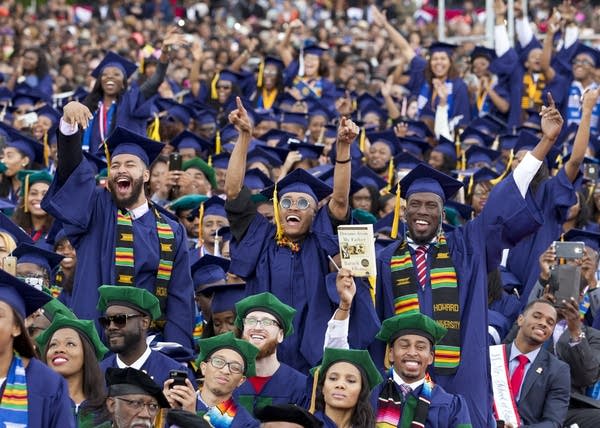APM Reports: The Living Legacy — Black Colleges in the 21st Century

Graduation day at Howard University, a historically black university in Washington, D.C. Howard is among a number of HBCUs increasing the number of international students on campus.
Jose Luis Magana | AP Photo file
Go Deeper.
Create an account or log in to save stories.
Like this?
Thanks for liking this story! We have added it to a list of your favorite stories.


